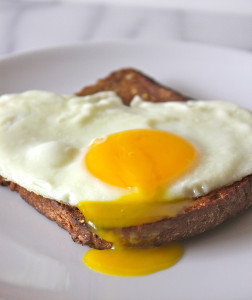In an apparent triumph of culture over science, the UK’s Advisory Committee on the Microbiological Safety of Food says pregnant women should be told they can safely eat runny eggs, almost 30 years after the Salmonella crisis.
 British eggs with the red lion mark carry such a low risk that vulnerable groups, such as expectant mothers and elderly people, could eat them lightly cooked or raw in items such as mayonnaise.
British eggs with the red lion mark carry such a low risk that vulnerable groups, such as expectant mothers and elderly people, could eat them lightly cooked or raw in items such as mayonnaise.
The report by the committee’s egg working group said lion-marked eggs, which make up almost 90% of UK production, should be categorised as “very low” risk. This was because improved hygiene and storage had resulted in “a major reduction in the microbiological risk from salmonella” in British hen eggs in the last 15 years.
It recommended that the Food Standards Agency change its official advice on these eggs but said the warning should remain in place for imported eggs, UK eggs without the lion mark and those from birds other than hens.
Fears over salmonella peaked in the late 1980s when 2 million chickens were slaughtered and pregnant women were told to avoid undercooked eggs.
The ACMSF report said: “The ‘very low’ risk level means that eggs produced under the lion code, or produced under demonstrably equivalent comprehensive schemes, can be served raw or lightly cooked to all groups in society, including those that are more vulnerable to infection, in both domestic and commercial settings, including care homes and hospitals.”
In 1988 the then junior health minister Edwina Currie said most egg production in Britain was infected with salmonella. Her comments sparked a public outcry and forced her to resign two weeks later. By early 1989 the link between eggs and salmonella poisoning was proved beyond doubt.

